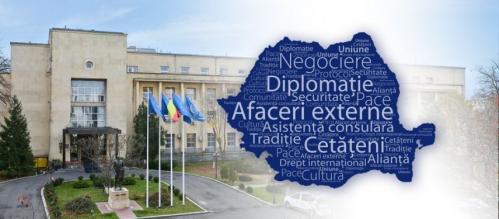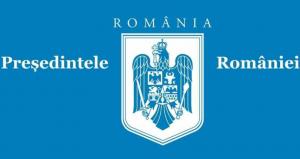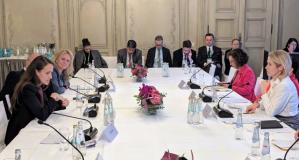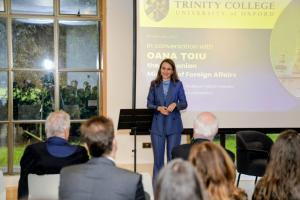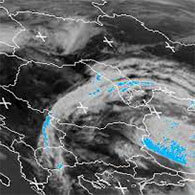MAE Participarea ministrului afacerilor externe Luminița Odobescu la deschiderea lucrărilor Forumului Euro-Atlantic pentru Reziliență
MAE: Participarea ministrului afacerilor externe Luminița Odobescu la deschiderea lucrărilor Forumului Euro-Atlantic
28 Sep, 2023 14:52
ZIUA de Constanta
 741
Marime text
741
Marime text
 741
Marime text
741
Marime text
Ministrul afacerilor externe Luminița Odobescu a participat joi, 28 septembrie 2023, la deschiderea lucrărilor celei de-a doua ediții a Forumului internațional Euro-Atlantic pentru Reziliență, având ca tematică ”Resilience at Sea and its Impact on Land”.
Șefa diplomației române a subliniat relevanța regiunii Mării Negre în contextul războiului de agresiune al Federației Ruse în Ucraina, regiune cu semnificație geopolitică deosebită aflată în epicentrul acestui conflict. A subliniat faptul că reziliența, în multiplele sale dimensiuni, a devenit o prioritate strategică, iar contracararea amenințărilor hibride necesită o abordare integrată și o colaborare strânsă între guvern și cetățeni.
De asemenea, a menționat că reziliența reliefează atât conotații militare, cât și civile, punctând faptul că una dintre cele mai condamnabile tactici hibride folosite de Federația Rusă este împiedicarea transportului de grâne și fertilizatori din Ucraina către piețe externe. Ministrul afacerilor externe a precizat că România a acționat și va acționa în continuare în coordonare cu statele sale vecine și partenerii strategici, astfel încât să faciliteze la maxim tranzitul de produse agricole prin porturile românești.
Forumul internațional Euro-Atlantic pentru Reziliență este organizat de Centrul Euro-Atlantic pentru Reziliență, în perioada 28-29 septembrie 2023, la București și reunește experți în domeniu din plan extern, atât din sfera guvernamentală, cât și din sectorul privat.
Redăm, mai jos, transcriptul discursului susținut de ministrul afacerilor externe Luminița Odobescu în deschiderea evenimentului:
Distinguished Guests,
Ladies and Gentlemen,
It gives me great pleasure to participate in the opening of the 2nd Edition of the Euro-Atlantic Resilience Forum.
I would like to thank the organizer – the Euro-Atlantic Resilience Centre. The Centre has been constantly enlarging its footprint in the area of building resilience and has become an important expertise hub in this field.
The subjects that you will discuss during the Forum are extremely relevant. Because the current geopolitical context remains of grave concern.
Russia’s unprovoked and illegitimate aggression against Ukraine has far and wide negative consequences. We will use each opportunity to firmly condemn, in the strongest possible terms, the attack on Ukraine`s independence, sovereignty and territorial integrity.
And our position on the Russian war of aggression against Ukraine will not change. We continue to provide support for Ukraine bilaterally, and within NATO and the EU. We also have a strong and firm position on Russia in all multilateral formats.
Ladies and gentlemen,
In this context, I welcome this Forum’s theme: Resilience at Sea and its Impact on Land. Because the war of aggression that Russia is waging against Ukraine has a consistent naval dimension.
The war highlighted Russia’s strategic goal of having the Black Sea region in its sphere of influence, not only as a gateway to other regions, but also as a means to maintain world power status.
That is why, more than ever, resilience at sea is of utmost importance, as it has undeniable consequences on land.
Resilience at sea is not only about military campaigns. It also has a major civilian component as the Black Sea region is a critical supply and transit hub for a wide array of goods.
One of the most cynical hybrid tactics used by Russia is weaponizing food. It is breaking the basic principle of freedom of navigation. We are not talking about impeding the transport of luxury goods, but of basic agricultural products.
And Romania acts coherently, in close coordination with its neighbors and strategic partners, Ukraine and the Republic of Moldova included, in order to keep and, where possible, increase the capacity of transit of its ports for the Ukrainian grains.
The complex hybrid threats of today require a tailored and efficient answer. A key component of countering cyber-attacks is building resilience. It’s not only about strengthening cyber security and domestic legal frameworks, but also a proactive approach from the civil society.
Resilience is also at the center of NATO’s efforts to adapt to the current security realities. Romania strongly supports this focus the Alliance is placing on strengthening resilience.
Șefa diplomației române a subliniat relevanța regiunii Mării Negre în contextul războiului de agresiune al Federației Ruse în Ucraina, regiune cu semnificație geopolitică deosebită aflată în epicentrul acestui conflict. A subliniat faptul că reziliența, în multiplele sale dimensiuni, a devenit o prioritate strategică, iar contracararea amenințărilor hibride necesită o abordare integrată și o colaborare strânsă între guvern și cetățeni.
De asemenea, a menționat că reziliența reliefează atât conotații militare, cât și civile, punctând faptul că una dintre cele mai condamnabile tactici hibride folosite de Federația Rusă este împiedicarea transportului de grâne și fertilizatori din Ucraina către piețe externe. Ministrul afacerilor externe a precizat că România a acționat și va acționa în continuare în coordonare cu statele sale vecine și partenerii strategici, astfel încât să faciliteze la maxim tranzitul de produse agricole prin porturile românești.
Forumul internațional Euro-Atlantic pentru Reziliență este organizat de Centrul Euro-Atlantic pentru Reziliență, în perioada 28-29 septembrie 2023, la București și reunește experți în domeniu din plan extern, atât din sfera guvernamentală, cât și din sectorul privat.
Redăm, mai jos, transcriptul discursului susținut de ministrul afacerilor externe Luminița Odobescu în deschiderea evenimentului:
Distinguished Guests,
Ladies and Gentlemen,
It gives me great pleasure to participate in the opening of the 2nd Edition of the Euro-Atlantic Resilience Forum.
I would like to thank the organizer – the Euro-Atlantic Resilience Centre. The Centre has been constantly enlarging its footprint in the area of building resilience and has become an important expertise hub in this field.
The subjects that you will discuss during the Forum are extremely relevant. Because the current geopolitical context remains of grave concern.
Russia’s unprovoked and illegitimate aggression against Ukraine has far and wide negative consequences. We will use each opportunity to firmly condemn, in the strongest possible terms, the attack on Ukraine`s independence, sovereignty and territorial integrity.
And our position on the Russian war of aggression against Ukraine will not change. We continue to provide support for Ukraine bilaterally, and within NATO and the EU. We also have a strong and firm position on Russia in all multilateral formats.
Ladies and gentlemen,
In this context, I welcome this Forum’s theme: Resilience at Sea and its Impact on Land. Because the war of aggression that Russia is waging against Ukraine has a consistent naval dimension.
The war highlighted Russia’s strategic goal of having the Black Sea region in its sphere of influence, not only as a gateway to other regions, but also as a means to maintain world power status.
That is why, more than ever, resilience at sea is of utmost importance, as it has undeniable consequences on land.
Resilience at sea is not only about military campaigns. It also has a major civilian component as the Black Sea region is a critical supply and transit hub for a wide array of goods.
One of the most cynical hybrid tactics used by Russia is weaponizing food. It is breaking the basic principle of freedom of navigation. We are not talking about impeding the transport of luxury goods, but of basic agricultural products.
And Romania acts coherently, in close coordination with its neighbors and strategic partners, Ukraine and the Republic of Moldova included, in order to keep and, where possible, increase the capacity of transit of its ports for the Ukrainian grains.
The complex hybrid threats of today require a tailored and efficient answer. A key component of countering cyber-attacks is building resilience. It’s not only about strengthening cyber security and domestic legal frameworks, but also a proactive approach from the civil society.
Resilience is also at the center of NATO’s efforts to adapt to the current security realities. Romania strongly supports this focus the Alliance is placing on strengthening resilience.
Urmareste-ne pe Grupul de Whatsapp
Comentarii
 Fondul Documentar Dobrogea de ieri și de azi
Fondul Documentar Dobrogea de ieri și de azi




